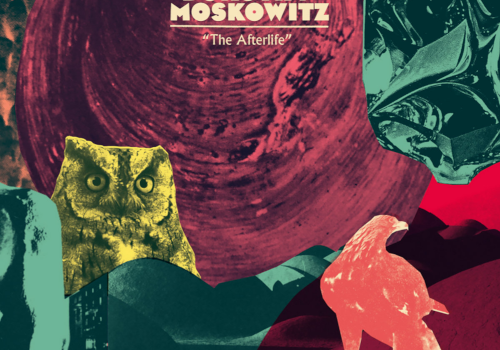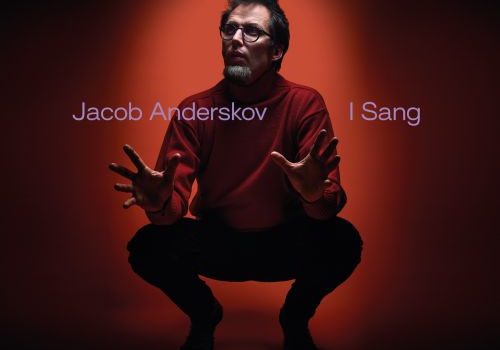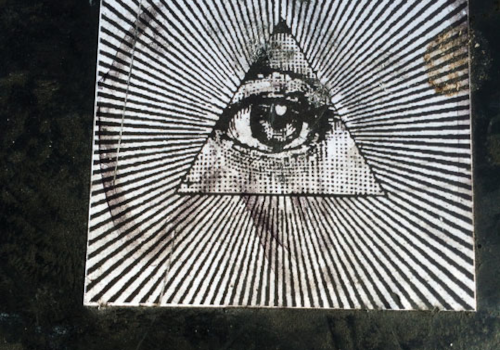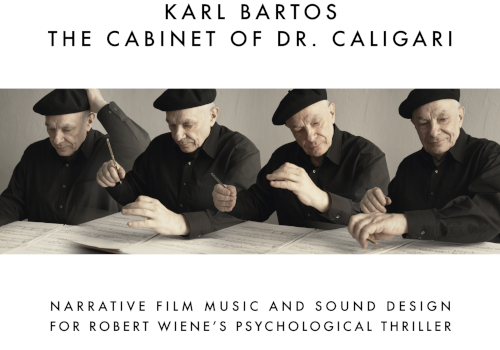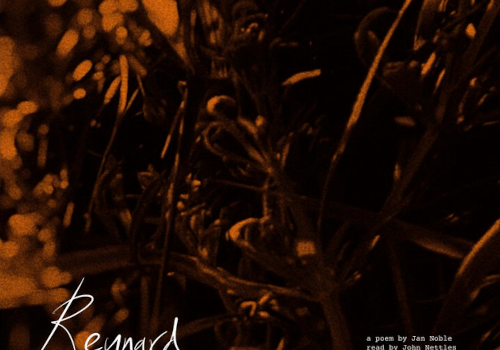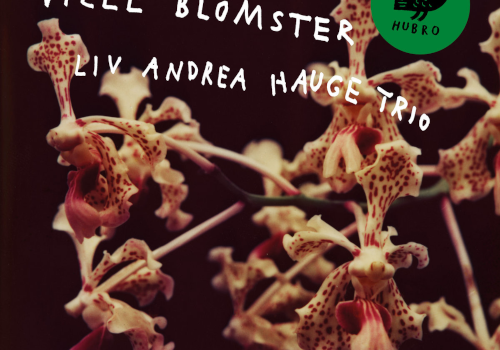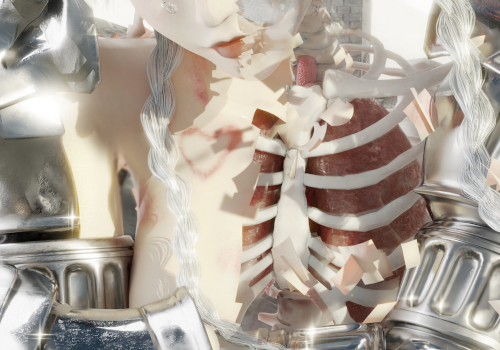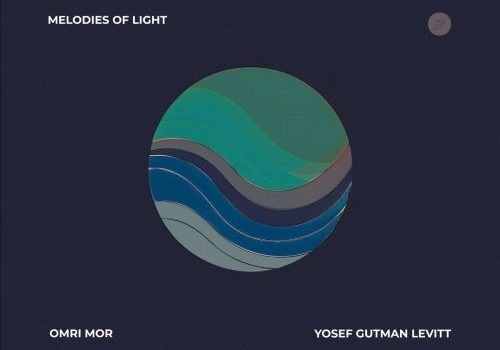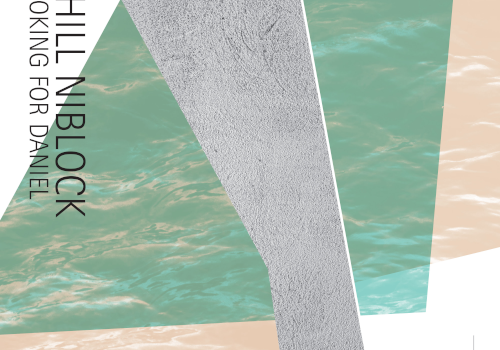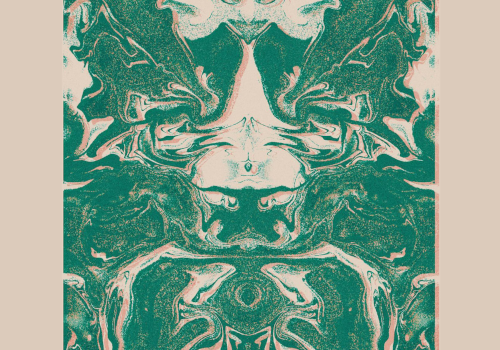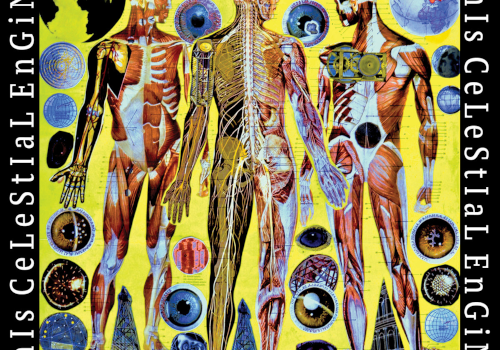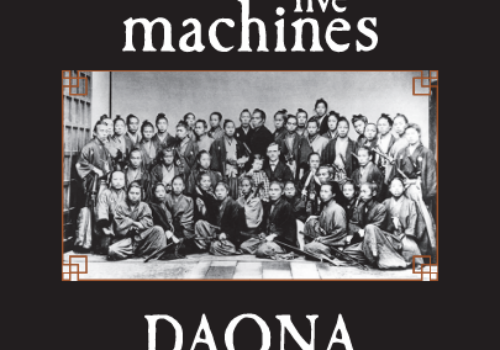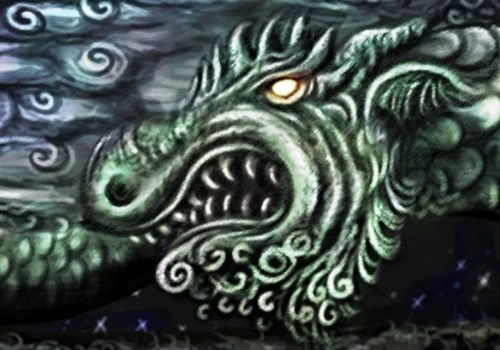Trailing on the shirt tails of last year's lathe-cut seven inch Afterlife EP comes a whole album's worth that doesn’t disappoint. Pleasantly parading around the head like the cover of an unread novel that fertilizes the imagination before you’ve even taken in a single word, The Afterlife’s treacly glow sticks to you in chorused warmth and glittery keystrokes, the occasional word-form whirling its architecture like an intoxicated hex.
Album review
Danish pianist Jacob Anderskov has many albums and collaborations under his belt; but on his latest, he has chosen, along with a small group of friends, to shine a light on an under-appreciated art form, that of højskolesangbogen. This is a form of nineteenth century folk music, incorporating hymns and singalongs that is very much part of Danish cultural identity. As with a lot of these forms of northern European folk music, they are tied to a certain time and Jacob has chosen this album to drag it into the twenty-first century, taking a detour through some twentieth century jazz motifs.
Fuzz Club Recorded over ten years ago and presumed lost in the digital æther, The Telescopes‘ sixteenth album is a game of two halves; one half recorded in Berlin at the Brian Jonestown Massacre studio and the other back in Leeds with the venerable Richard Formby. Co-opting London-based experimenters One Unique Signal, the LP seems to be the last before they signed to their current label Tapete and […]
Although their collective nose was rather put out of joint by the release of Walls Have Ears – it was, after all, unsanctioned – contained within its fiery orange pumpkin cover, the album nevertheless remains an early jewel. Some inspired unofficial curation has caught ferocious live interpretations of an hour and a half worth’s of material culled from their first two albums and some which would appear for the first time the following year on Evol.
Bureau B Robert Wiene’s 1920 film of The Cabinet Of Dr Caligari is the cornerstone for all expressionist film-making and one of the jewels in the crown of Weimar Germany’s art. Filmed at what would become the UFA studio in Berlin, Dr Caligari was created on the large soundstages there using painted backdrops and even painted shadows. Its sets were skewed to give a dreamlike effect throughout the […]
Noble's Reynard is as wise, playful and tricksy as ever, but there's a noirish modernity to the proceedings, putting one in mind of TS Eliot or Iain Sinclair, with Reynard as the ultimate flaneur, shifting effortlessly from the green of the countryside to the greys and neons of the city, from the terror of the hunt to the tedium of the office.
On the strength of this, his sophomore album, he has left any pure jazz strains far behind and is instead forging ahead with his own recipe for the guitar trio, blending blues, Balkan and scratchy improv into a wholesome stew. Choosing the backing of bassist Tilman Oberbeck and percussionist Jan Zeimetz has imbued this album with a more exploratory sound compared to 2020's Szvetlo and you can feel his confidence rising. Although shorter in length, it feels more assured and more willing to take risks.
Although a year in the making, only three days were spent in the studio recording Ville Blomster. That spontaneity, as well as Liv's manner of writing in her apartment with the windows open, allowing life to suffuse the compositions, comes through in the end result.
In Real Life One of the more fun things about musicians in their twenties, probably, is that they have admirable disregard for the norms of music because, well, why would you. This is listed as an album and is just north of twenty-five minutes long. But it is, of course, about what you can pack in, not how long you take. And I doubt most people making ‘albums’ […]
These pieces are Omri's improvisations and it was he who suggested to producer Gilad Ronen that a drum / piano duo would be the perfect way to flesh out his bowl full of ideas. Yosef and Gilad took it one step further, not only adding instrumentation but directing the sessions in a way that would draw the best from Omri, allowing him to focus purely on producing keyboard magic.
One of the major differences between the live and the home experience is that I'm now at an age where I'm not inclined to wind up the neighbours with excessive volume. So the home experience misses something of the blur of the shape of the room from the exceptional volume of the live version. I imagine part of the live effect is precisely that the tones find different refractions from the contours of a given room, generating cross tones and various Tartini effects.
Every couple of years or so brings a new Kreidler album and with it another slight change in direction. They seem to have spent the last thirty years keeping interested parties guessing, and perhaps beyond their obvious affinity with electronica, you can assume nothing about what each album may entail.
...n opportunity to fully liberate the bulky and some might say archaic device from its classic image and give it a whole new lease of life. His description of firing up the starting motor and hearing the Leslie speaker start to revolve is warming, and his obvious love and even hidden desire to put the organ through its paces is clear from the two adventurous improvisational pieces collected here.
The free-flowing chemistry between Finnish producer and audio engineer Antti Uusimäki (Uzu Noir) and Pharaoh Overlord’s Pekka Jääskeläinen (Ontelo) is great -- low-key and unscripted. Invisible Labyrinth's two sides seemingly to blur into one cohesive whole, each quietly teasing out the best in each other, bringing their undeniable lightness of touch to the listener.
Convening in Oslo, the trio has managed to produce something that sounds nothing like you might expect and over the course of five improvised and experimental compositions, leads you further and further away from any mainstream influence and into the realm of pure imagination.
The music here thistles a composed and crafted ambience, eagerly pulling at its constraints. A flush of triggering sensibilities that are masterfully dark. Weaving energies tied to the spherical-shaped symphonics of the next track, "Mono No Aware". Sonics that seem to bounce off the stern-faced circles of samurai on the cover, spilling over in semaphore pulses and torn keystrokes.
The idea of swashbuckling Norwegians taking their belongings and, along with so many other nationalities, trying their luck in the land of the free, is what this album is about. What it does best is to pair a modern update of Norwegian folk music with mythic acoustic Americana; layering pedal steel with Hardanger fiddle and harmonium with guitar, finding a common ground as the incomers gradually settle.
Keith Jafrate, nominal head and writer of the endless serpent that is Uroboro, gathered together this exploratory quintet to give flesh to various ideas and coincidentally to act as guinea pig for a newly converted studio the Old Post Office in Todmorden run by some friends. There was a piano already in place and an eight-second reverb which Laura Cole pronounced usable, and off the group went for an initial live run out.
